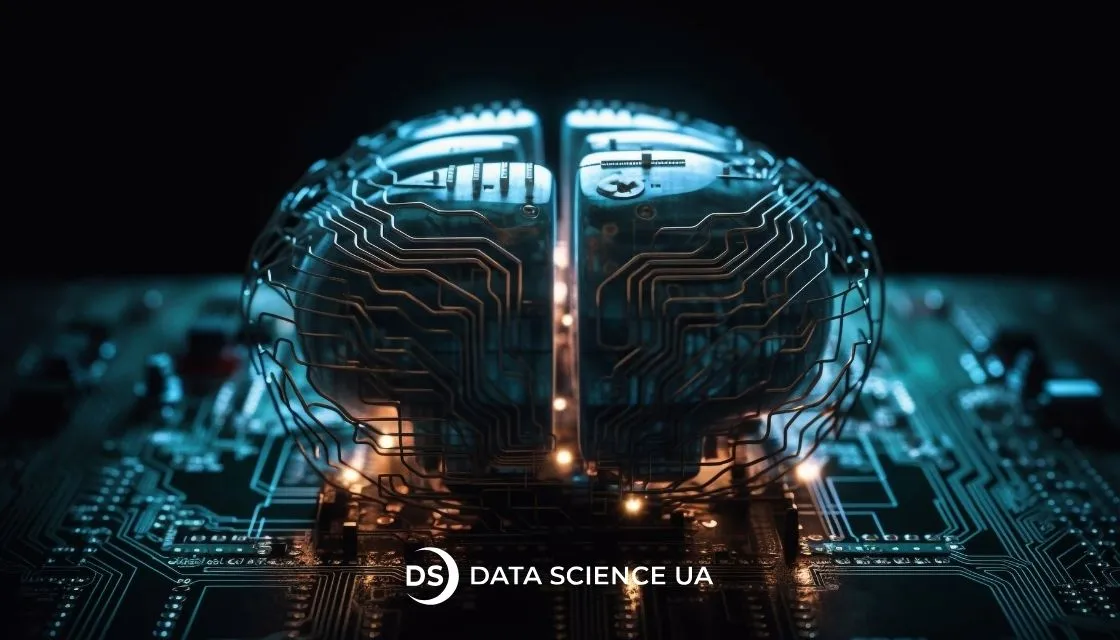How AI Business Process Automation Is Going to Change the Modern Enterprise
An increasing number of companies are resorting to AI business process automation as a means to smoothen their operations and manage them better. The integration of AI in business process automation is a transformative force which is changing the way organizations function and compete. This article throws light upon the different dimensions of AI-driven business process automation, its advantages, and real-world applications, besides mentioning the future trends that organizations must be abreast of.
Understanding AI for Business Process Automation
AI systems or machines imitate the intelligence of humans in performing tasks and, with iteration, improve on their own based on information gathered. BPA stands for Business Process Automation, meaning the repetition of certain tasks for an organization is automated using technology. Together, business process automation with ai form ingenious solutions to increase productivity and efficiency. For example, think of a company like Zendesk, which gets thousands of customer inquiries daily. Human agents would have to respond to each and every query; this always resulted in long queues and might also lead to the dissatisfaction of the customer. With the coming of AI-driven chatbots into Zendesk, common frequently asked questions are thus automated, while human agents attend to more complex requests. AI for business automation improves response times, boosting the overall customer experience. Check out our artificial intelligence development services to understand how this technology can help your business better.

The Power of AI Business Process Automation for Businesses
How AI and Business Process Automation Work Hand-in-Hand
AI enhances business process automation by bringing in a wide array of capabilities, including machine learning, natural language processing, and predictive analytics. These technologies enable businesses to automate not only simple but also complex tasks that relate to decision-making, data analysis, and customer interaction.
For example, AI for business automation solution can analyze historical trends of certain data to make recommendations that will enable an organization to make decisions automatically, decisions that were previously made by humans. This is the synergy that will speed up the process and further add accuracy and effectiveness to the process involved. In marketing, Amazon uses AI to analyze customer behaviors and preferences to personalize campaigns in real time. For instance, if one customer continually searches for athletic shoes, the system will then be able to auto-populate advertisements for related products. This focused method raises the potential for conversions, while at the same time improving customer satisfaction. Learn more in custom AI agent development services.
Smarter scalability and growth through AI-powered business process automation
Probably the most significant benefit of integrating AI into business process automation is scalability. Businesses, while growing, are growing in volumes. AI business process automation can handle such growth smoothly since business processes are automated, meaning companies can expand their operations without necessarily growing resources proportionately. This aspect is very important for any business wanting to grow rapidly with a minimum reduction in operational efficiency. AI helps Walmart, one of the largest retailers in the world, to optimize its supply chain. Data from different sources, such as the sales forecast, inventory level, and supplier performance, are used to project changes in demand using AI. It then adjusts the ordering automatically to ensure that Walmart has optimum stock levels without overstocking or stock outs during periods of growth.
Key Benefits of AI for Business Process Automation Solutions
Streamlining Efficiency and Reducing Operational Costs
It therefore cuts down the time involved in completing any task, reducing the overall cost of operation. Business processes have moved to automate repetitive tasks such as data entry, invoicing, and customer support, freeing human resources for more strategic initiatives. This shift in gears enhances productivity, with consequent savings in costs, thus making organizations more competitive. AI has been successfully applied in automating invoice processing in IBM financial operations. This could be an IBM AI system that automatically reads and categorizes hundreds of invoices from a finance department every day against a purchase order, thereby speeding up the process, reducing errors, which will result in faster payments and improved supplier relationships.
How AI Business Process Automation Can Improve Customer Satisfaction
With today’s customer-centric market, timely and personalized services are essential. AI facilitates customer relationships with its chatbots, virtual assistants, and automated email responses. With chatbot development services, conpany ensures that customer inquiries are promptly and effectively responded to, businesses can ensure satisfaction levels are higher and trigger loyalty. Customer purchase history and preferences are analyzed by eBay using AI. If one customer purchases a lot of ‘green’ products, the AI system will recommend similar items during shopping. Personalization on one hand enhances customer satisfaction, but on the other hand, it raises the average order value.
Staying Competitive and Driving Innovation
AI in business processes makes it possible for companies to maintain leads. This is because, with the ability to analyze tons of data in record time, AI identifies market trends and consumer behaviors that, in turn, help businesses innovate and adjust their respective strategies. This proactive approach is very critical in sustaining a competitive edge in an increasingly fast-changing market. Apple uses AI in leveraging insights from user feedback and usage data in product development. Identifying such features could allow Apple to create enhancements that precisely target user interests with a view to bringing products closer to actual customer needs.
Error Reduction and Improved Compliance
These are huge risks dealing with manual processes. Conversely, an AI system reduces these errors by automating data entry and its related calculations. In addition, AI helps an organization maintain compliance by automatically updating the latest regulations within systems and aligning processes against legal standards. Anthem uses AI in highly regulated industries like finance and healthcare to automatically track changes in regulations and make sure company policy is updated. This decreases the risk of non-compliance and resultant fines, thus enabling the compliance officers to direct their efforts toward higher-value-added tasks.

Real-World Applications of AI in Business Process Automation
Smoothing DevOps with AI-Driven Automation
The trend has changed with the involvement of AI in DevOps, automating testing, deployment, and monitoring processes. Microsoft Azure DevOps uses AI to smoothen these processes, which helps to deliver applications faster with higher quality. Interested in learning more about the topic? Check out our article about AI in DevOps.
Innovative Application of AI in Game Development
It is being used in the gaming industry as well. For example, Electronic Arts, for developing more realistic experiences. From automated game testing to making NPCs more human-like, AI continues to change how a game is crafted and consumed. Please refer to our article dedicated to AI in game development.
Automating Investment Management Using AI
Goldman Sachs is simplifying investment management in the financial industry by using automated trading systems and risk assessment tools. AI can analyze a large volume of market data in real time to assist investors in making better decisions on time. Read more in our article about AI in investment management.
Advancing Fintech with AI Solutions
Square Inc. is on the frontline in fintech innovation: facilitating faster loan approvals, fraud detection, and offering personalized financial advice. It changes how financial services operate; it smooths the process and makes them more user-friendly. Refer to our article, AI in fintech, for more.
AI in Manufacturing Industry Transformation
With AI mainly pervading the production process, Siemens, like other companies, leverages the technology in different ways to optimize production, manage supply chains, and improve quality control. Consequently, AI analytics may enable Siemens to more accurately forecast equipment failures and allow for the optimization of maintenance schedules. Learn about this topic in more detail in our section on AI in the manufacturing industry.
Steps to Implement Business Process Automation with AI
Identification of Key Business Processes to Be Automated with AI
The first step towards the implementation of business process automation and AI involves identification of processes that can be automated. Organizations should focus on tasks that are repetitive, time-consuming, and that don’t require human judgment. This kind of opportunity will be pinpointed upon proper assessment of the current workflow.
Choosing the Right AI Solutions and Platforms
In summary, once the processes have been identified, the key to implementation is selecting the right AI solution. This means there should be a process for evaluating different platforms and technologies that best fit organizational needs. These may include scalability, ease of integration with, and user-friendliness.
Training Teams to Integrate AI Business Process Automation
AI automation requires employees to be trained on the deployment of new technologies. Provide training programs for employees to go into the AI toolset, which will drive innovation culture within an organization.
Starting Small with Pilot Projects and Scaling Successfully
Smaller pilot projects, in which the AI solution is tested first and then scaled up, are advisable. It lets organizations assess how effective the automation has been and refine processes in light of real-world feedback. Successful projects can then be scaled up to cover other areas of the business.

Overcoming Challenges in Business Process Automation with AI
Addressing Data Privacy and Security in AI Business Automation
Data privacy and security are paramount in the implementation of AI solutions. The organization should ensure that it complies with regulations such as GDPR, protecting sensitive information from breaches. This will involve the implementation of appropriate security measures and frequent auditing to reduce the risks.
Integrating AI capabilities into your legacy system
Integration of AI with the mainstream existing legacy systems is a bit cumbersome for many organizations. It is the clarity of an integration strategy that has to be well thought out, considering the compatibility of new AI solutions with old systems. Gradual integration or phased implementations should help ease this transition.
Supporting Workforce Adaptation to Business Process Automation AI
The Ethics and Compliance Challenge
As the use of business process automation AI becomes increasingly popular, a host of ethical considerations sets in, and guidelines should, therefore, be put in place to make certain that the organization uses AI responsibly and takes up most of the compliance challenges. It calls for transparency in AI decision-making processes, protection of employee rights, etc.
Future Trends in AI for Business Process Automation
New AI and Automation Technologies
The future of AI for business process automation is bright, with promising technologies like robotic process automation and advanced machine learning algorithms already at the doorsteps. These will go a long way in extending the capabilities of AI in complicated automation solutions.
IoT Integrated with AI for Business Automation
IoT is going to play a critical role in the future of AI-driven business process automation. Organizations will be capable of connecting various devices and sensors that could collect real-time data for analysis by the AI, which will then optimize processes and decisions.
Business Process AI: Hyper-Automating, Predictive Analytics
In fact, hyper automation, or the implementation of AI business process automation, will be commonplace, enabling organizations to automate whole end-to-end business processes and not just simple tasks. Predictive analytics fuels this process by taking historical information to predict trends and outcomes.

Conclusion
AI business process automation empowers the modern enterprise to drive efficiency, reduce operational costs, and enhance customer satisfaction. Companies like Zendesk, Amazon, and Walmart have shown practical applications that prove the benefits of AI in customer support, marketing, and supply chain management.
Besides, AI-driven automation scales business processes without additional resource consumption. AI in financial processes, as illustrated by IBM, and in regulatory compliance, as demonstrated by Anthem, offers opportunities to reduce errors and improve conformance with changing regulatory requirements.
The regular adaptation of organizations to this digital landscape ranges from the embracement of AI for business process automation, which in itself will be very critical in driving innovation and guaranteeing a competitive advantage. The enterprise will need to be strategically placed for success in an increasingly automated world, through the understanding of key benefits and applications of AI.
FAQ
How can AI-driven business automation solutions benefit my company?
AI for business automation can smoothes processes, cuts operational costs, heightens customer satisfaction, and strengthens fast decision-making.
How to choose the right AI business automation tool?
Consider your organization’s specific needs, the tool’s compatibility with existing systems, scalability, and the level of support provided by the vendors.
What are the common applications of AI Business Process Automation?
The popular cases involve things like customer service automation, financial transaction processing, supply chain management, and marketing analytics.
Organizations can only achieve improvement in efficiency but also drive significant growth in innovation in an increasingly competitive environment by embracing AI business process automation.





